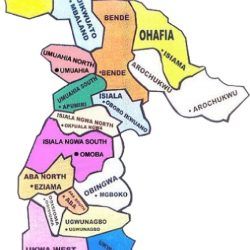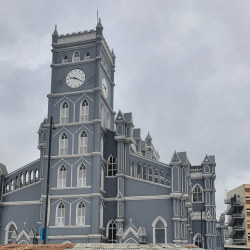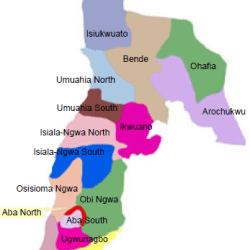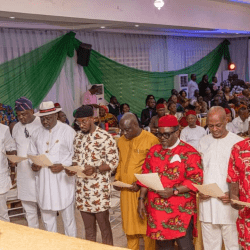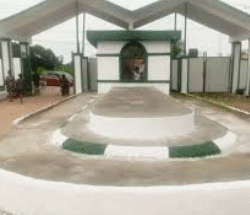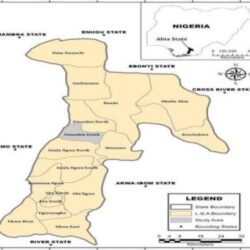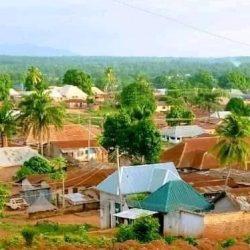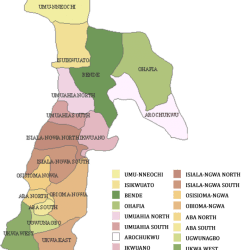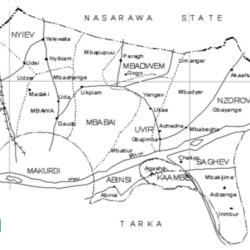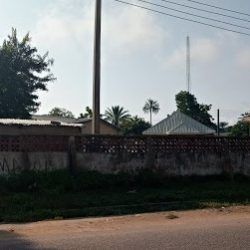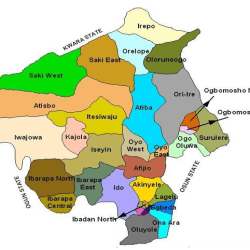1. Introduction to Umunneochi
Umunneochi Local Government Area (LGA) is one of the 17 LGAs in Abia State, Nigeria. Officially known as “Nneochi,” Umunneochi is located in the southeastern region of the country and plays a significant role in both the administrative and cultural landscape of the region. Its headquarters are based in Nkwoagu, Isuochi, which serves as the center of governance and political activities for the region’s autonomous communities. The LGA covers a landmass of 368 square kilometers and had a population of approximately 163,928 according to the 2006 census.
2. History of Umunneochi
The origins of the name “Umunneochi” are rooted in the ancient traditions of the people. The LGA is made up of three major septs: Umuchieze, Nneato, and Isuochi. Historically, these communities were bound together by kinship ties and a shared cultural heritage. Over time, as the region developed, the administration was centralized in Nkwoagu. Umunneochi has continued to grow, maintaining its traditions while adapting to modern governance structures. Each community within the LGA has a distinct history, yet they are united by the leadership of traditional rulers.

3. Geography of Umunneochi
Spanning an area of 368 square kilometers, Umunneochi is characterized by a diverse landscape that includes rolling hills, valleys, and flat lands. The LGA experiences a tropical climate, typical of southeastern Nigeria, with two distinct seasons: the dry season and the wet season. The average temperature is around 27°C, providing favorable conditions for agriculture. With an average wind speed of 10 km/h, the region’s weather patterns support both farming and cattle grazing. Umunneochi is strategically positioned near several major highways, making it accessible for commerce and trade.
4. Demographics
Umunneochi is home to a population of over 163,000 people, as recorded in the 2006 census. The inhabitants of the area belong primarily to the Igbo ethnic group, which is predominant in the southeastern region of Nigeria. The Igbo language is the most widely spoken in Umunneochi, though English is used in formal and educational settings. The population is predominantly rural, with many residents engaged in agriculture, commerce, and traditional crafts. The community is known for its strong kinship bonds, with extended families playing a central role in daily life.
5. Traditional Leadership
Traditional leadership in Umunneochi is a significant aspect of its governance and social organization. The paramount ruler of Isuochi, Eze G.I. Ezekwesiri, holds the title of Ochi 1 and plays a crucial role in maintaining the cultural heritage of the community. Umunneochi’s governance structure is based on a federation of autonomous communities, each governed by a council of Ndi-Eze, or traditional rulers. These leaders are not only custodians of the customs and traditions but also serve as intermediaries between the local population and the formal government authorities.
6. Administrative Structure
Umunneochi operates under a democratic system of governance, with its administrative capital located in Nkwoagu, Isuochi. The local government is responsible for providing basic services such as education, health care, and infrastructure development. The LGA’s leadership is elected, and its functions are regulated by the Abia State Government. As the administrative hub, Nkwoagu also serves as the focal point for political discussions and community meetings. The LGA has adapted to modern governance, blending traditional leadership roles with contemporary administrative responsibilities.
7. Major Towns in Umunneochi
Umunneochi is composed of several towns, each contributing to the socio-economic and cultural fabric of the LGA. The major towns include Umuelem, Ndiawa, Amuda, Umuaku, Achara, Lomara, and Ngodo-ukwu. These towns have evolved over time, with some undergoing reorganization for administrative purposes. Each town is known for its unique cultural practices and economic activities. For example, Ngodo Isuochi is the location of Spiritan University, while Lokpanta is home to Nigeria’s largest cattle market.
8. Economy of Umunneochi
The economy of Umunneochi is largely driven by agriculture and trade. The fertile soil and favorable climate allow for the cultivation of various crops, including cassava, yams, black beans, and cocoyam. Cash crops such as palm nuts and cashew nuts are also significant contributors to the local economy. In addition to agriculture, the LGA engages in the extraction of natural resources like granite, quorite, and laterite. These materials are used in construction and are traded regionally. Local artisans are also involved in pottery, which is a traditional craft passed down through generations.
9. Mining and Pottery Industry
Mining is a key industry in Umunneochi, with the region known for its abundant natural resources, including granite and quorite. These minerals are extracted and used in various industries, particularly construction. The presence of laterite, a vital material in road construction, has further boosted the local economy. Alongside mining, pottery remains a traditional craft in the region, with artisans producing clay pots, dishes, and other items for both local use and trade. Pottery production has deep cultural significance and is a source of income for many families.
10. Lokpanta Cattle Market
One of the most prominent features of Umunneochi’s economy is the Lokpanta Cattle Market, the largest cattle market in Nigeria. Located in the Lokpanta area, the market attracts traders from across the country and beyond, serving as a hub for the sale of livestock, particularly cattle. The market’s strategic location along major transportation routes makes it a vital center for the livestock trade in Nigeria. The economic impact of the Lokpanta Cattle Market extends to neighboring communities, providing employment opportunities and stimulating other sectors of the economy, such as transportation and commerce.
11. Education in Umunneochi
Education is a priority in Umunneochi, with several public and private schools providing basic and secondary education. Spiritan University, a Catholic institution, is a notable educational establishment located in Ngodo Isuochi. The university offers higher education opportunities to students from across Nigeria and plays a significant role in the intellectual and social development of the region. In addition to Spiritan University, Umunneochi is home to various primary and secondary schools that cater to the educational needs of the local population.
12. Infrastructure Development
Infrastructure development in Umunneochi is ongoing, with efforts focused on improving transportation, water supply, and electricity. The LGA’s location along major highways facilitates trade and the movement of goods, particularly from the Lokpanta Cattle Market

